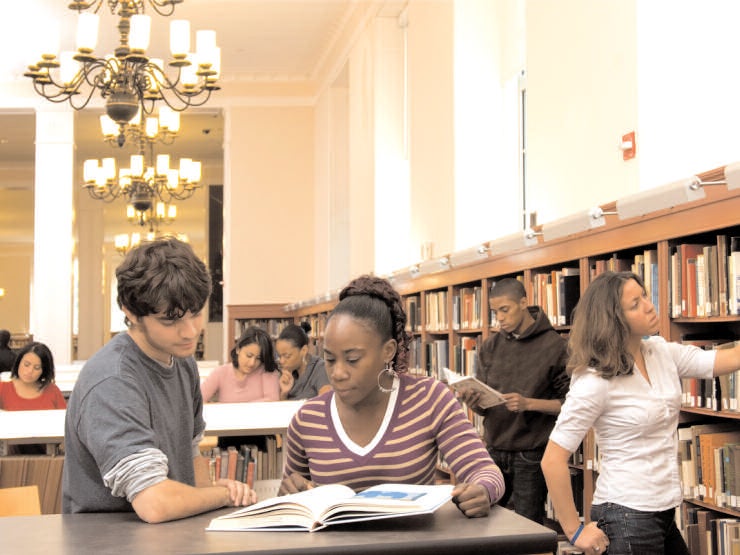The barrier is all in your mind
Studying abroad is an increasingly common way for students to earn their degree, writes Jessica Moore

Your support helps us to tell the story
From reproductive rights to climate change to Big Tech, The Independent is on the ground when the story is developing. Whether it's investigating the financials of Elon Musk's pro-Trump PAC or producing our latest documentary, 'The A Word', which shines a light on the American women fighting for reproductive rights, we know how important it is to parse out the facts from the messaging.
At such a critical moment in US history, we need reporters on the ground. Your donation allows us to keep sending journalists to speak to both sides of the story.
The Independent is trusted by Americans across the entire political spectrum. And unlike many other quality news outlets, we choose not to lock Americans out of our reporting and analysis with paywalls. We believe quality journalism should be available to everyone, paid for by those who can afford it.
Your support makes all the difference.Until recently, the idea of a UK student taking their degree at an international university was as foreign as the food, language and culture they were likely to find there. It was also viewed as an expense beyond the means of most families. Today, it’s a realistic option and rising trend.
Throughout Europe, institutions offer globally recognised degrees for a fraction of the UK sticker price. An English-language degree in Denmark or Finland is free. In Spain, fees are £200 a year. In Germany, they’re £720 – and it’s a similar story in many other areas of the EU.
“I think in the UK people are increasingly internationally focused,” says Harrie van Elderen, marketing manager at Breda University of Applied Sciences (NHTV) in the Netherlands, where you can study for around £1,400 a year. “That is partly to do with the fees rising in the UK. It makes students think more internationally – perhaps the kinds of students that might not have considered it otherwise.
“When students come to NHTV from outside the EU, they tend to be from a more international background, perhaps with parents who travel and work all over the world.
They also tend to come from a wealthier background. They’re not what you might call ‘normal’ people. But from within the EU, and particularly from the UK, we’re now getting students from all parts of society.”
Dr Tessa Stone is chief executive of the Brightside Trust, a charity that supports young people from disadvantaged backgrounds into higher and further education. She also notes this sea change: “I hear teachers saying more and more that students of all backgrounds are looking at universities in Europe and at scholarships to study in places beyond that, such as the US.”
MJD Consulting shares information about international study options with students and their parents.”
We are speaking to students from all backgrounds – and there’s considerable interest across the board,” says their Marcel Dalziel, the managing director. However, he notes two types of students who are most likely to have global study ambitions: those with parents who are encouraging of the idea and have a “certain mindset”, and those with an international background.
At MJD Consulting’s recent Student World Fair in London, for example, Dalziel says: “We met quite a few British-African students and their parents. Off the back of that trend, universities are starting to target UK students who have family members from their country. For example, the University of the West Indies has just authorised a campaign to target Afro-Caribbean populations in London, Birmingham and Manchester, inviting them to their university in Jamaica. The logic is that those UK students and their families might be more internationally minded.”
Samuel Ewuosho, 22, studied part of his degree in engineering and property at the Hong Kong Polytechnic University. “My family is Nigerian, but I grew up in Surrey,” he says. “I leapt at the chance to study abroad. It’s a nurture thing.
My parents travel a lot, I travel a lot, and my sister is now studying her degree in Germany too. Because of my background, I’ve always been very internationally minded.”
However, Ewuosho adds that he found a very mixed student body in Hong Kong: “I met people from all sorts of backgrounds, and a lot whose families are English.”
Join our commenting forum
Join thought-provoking conversations, follow other Independent readers and see their replies
Comments